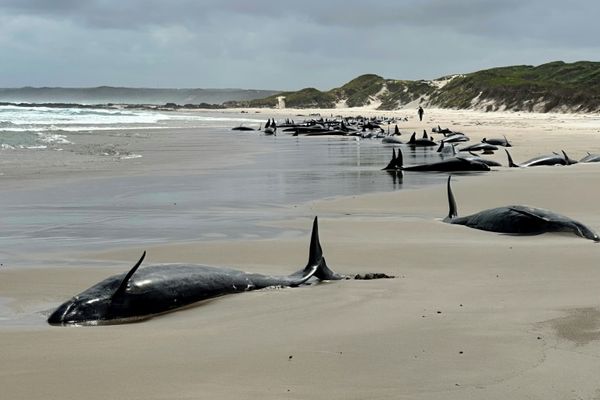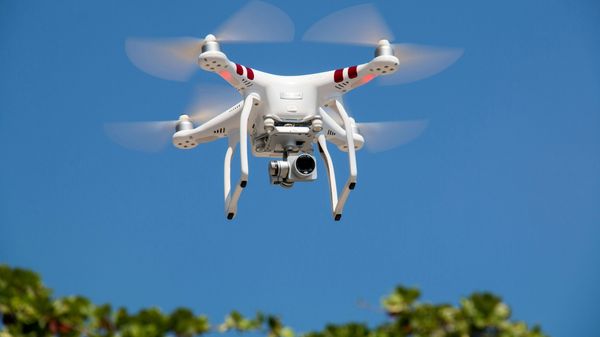A group of whale watchers have been treated to the rare sight of a pod of orcas chasing a blue whale.
Recorded interactions of this nature between the two species are few and far between — only a handful of successful orca attacks on blue whales have been documented.
For this particular blue whale however, it was a lucky day.
Whale Watch Western Australia owner Gemma Sharp was on board with the tour group at the time and said the event, which happened early this week, was "absolutely incredible".
"[We were watching] a few sperm whales and pilot whales, and then the orcas," she said.
"[It was] all very calm and relaxed, until all of a sudden the ocean just exploded to life.
"The blue whale knew it was in trouble, so it just took off.
"He was absolutely flying.
"Keep in mind he weighs around 90 tonnes and is about 20 metres long … it's a massive creature."
Ms Sharp said a small group of orcas kicked off the hunt last week, but reinforcements soon arrived.
"The rest of the family joined in, so a total of 16 orcas," she said.
"The family did what they could, but the blue whale just managed to outswim them."
Ms Sharp said the chase played out for more an hour and that the blue whale and the orcas reached speeds in excess of 30 kilometres per hour before the prey outpaced the hunters.
"It's the first time we've witnessed a blue whale escaping these attacks, which is encouraging, because we know that the population is endangered … every blue whale counts," she said.
"It was one of those things which [will] stick in our minds for the rest of our lives."
'Incredibly intelligent'
Project ORCA marine scientist Rebecca Wellard says the south coast of WA is the perfect place to observe the "unique feeding behaviours" of orcas because it is home to Australia's largest population of the species.
"The killer whales work together really well to take down such a large animal … the blue whales are the largest animals on earth," she said.
She said numbers were crucial for an orca hunt to be successful and that she had observed pods of as many as 60 killer whales come together to take down large prey.
"[Orcas] range between six to nine meters, so there's a huge size difference," Dr Wellard said.
"But the killer whales make up for it in their numbers, and in their coordinated attacks … they're incredibly intelligent animals.
"Their social structure of the killer whales really means that they're very family orientated."
She said the hunt was a rare spectacle to witness.
"I'd love to do more research so we can find out what else they're doing out there that we can't see because it's so far offshore," she said.
For more details and photos of the event, check out Whale Watch WA's first-hand account here.







